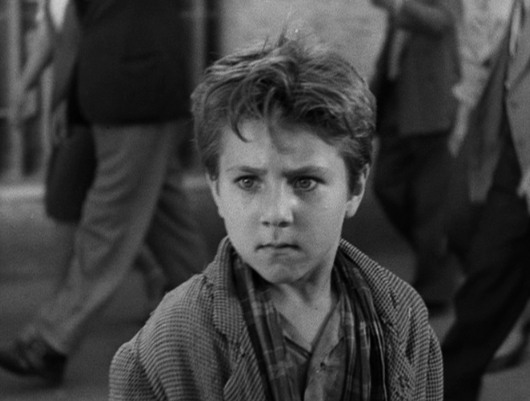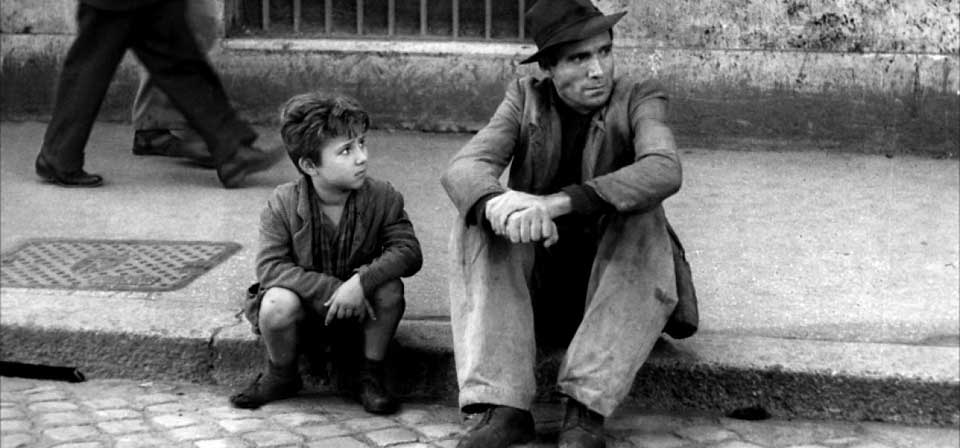Bicycle Thieves (Lardi di Biciclette) is an essential film in the history of cinema in terms of bridging between the prior filmmaking traditions and the modern European cinema.
Directed by Vittorio De Sica, Bicycle Thieves is a distinctive example of the Italian Neorealist films. The wave comes as a rejection towards the Hollywood system and is defined by certain characteristics such as the use of nonprofessional actors, on-location shooting rather than sets, and the lack of happy endings.
The large scale productions at sets, with artificial lights and Hollywood stars etc. were not only unwanted but also were out of reach financially. In post II World War Italy, the lack of finances for a studio, electricity or actors led these directors to make cinema out of nothing: It is realist because they had no other choice. However at the same time, technological improvements accelerated to make portable, rechargeable, and less heavier machinery to carry to the battle fields. Consequently, neorealist films became the first real cinema to depict the themes of lower classes in order to raise social consciousness.
So, Bicycle Thieves casts non-professional actors, is shot totally on location in the streets of postwar Rome, and differs from the Classical Hollywood Narrative as the importance of a narrative falls behind the aim of conveying the general condition; which then was formed mainly by economic struggles. Also, the film does not provide us with a happy ending; leaving the character right where he started.

The film follows Antonio Ricci (Lamberto Maggiorani), an unemployed man who finally gets a job that requires him to own a bike. His life goes on a downward spiral when his bike gets stolen, and he walks the streets of Rome with his son Bruno (Enzo Staiola), looking for it.
With the help of the use of dramatic sound, the viewer fully identifies with the main character and adorable Bruno up to a point that we find ourselves rooting for Antonio to steal a bike, even though we were angry when his was stolen in the first place. At that point he makes the film’s title plural, and shows how the system incites a decent man to commit the same malignant behavior. In other words; “A moral man, placed in very difficult economic and social circumstances, becomes beaten down by his environment and compromises his morality in an effort to survive.” Might sound familiar if you have seen The Song of Sparrows.
Bruno had to grow up fast to help his mother while his father was at war, which explains why he is very mature for an eight-year-old. For this reason, after Antonio’s failed theft attempt, his immorality is very clear to Bruno, which makes it even more humiliating. Not only his inadequacy as a provider (that he lost the job as well as the bike), or as a guardian parent (when Bruno almost got hit by a car as he wasn’t looking out for the boy on the streets), but he also confronts his loss of dignity. Antonio’s despair reaches its climax with Bruno’s wounded expression. The scene remains being one of the most powerful moments in cinema. Fun(?) Fact: De Sica reports that he put cigarettes to the little actor’s pocket and accused him of theft on set to induce tears for the scene.

At the end, Antonio is back where he started: no job, no bicycle. Bicycle Thieves reminds the Hollywood viewer of the unpleasant reality outside the movie theatre, and preserves its impact 71 years after its release.
